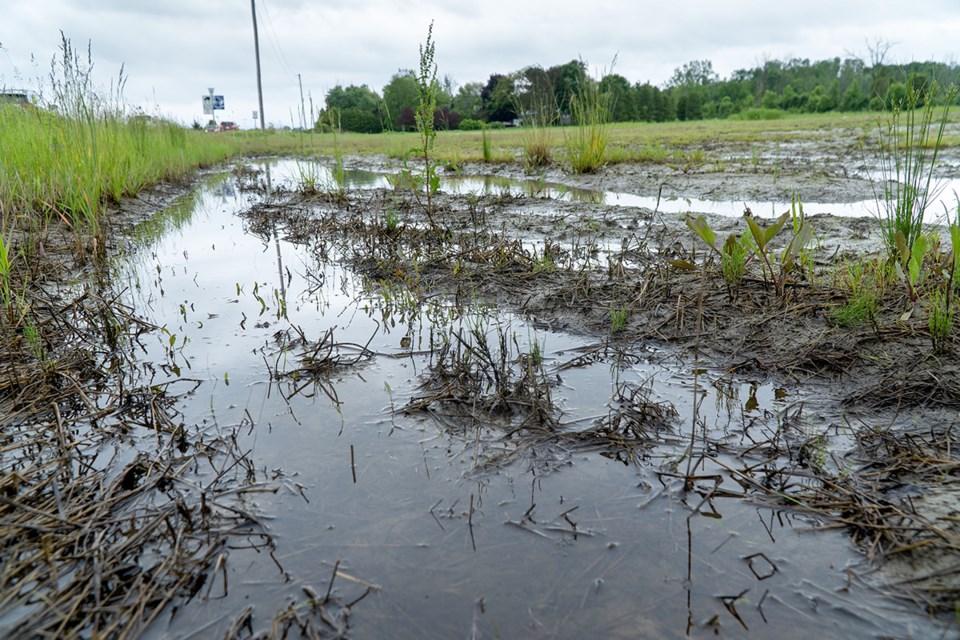Cathy Dobson
Local farmers are resigned to what has been one of the worst growing seasons in memory.
An exceptionally cold, rainy spring has cost Sarnia-Lambton up to $97 million in lost revenue. That includes a 35% decline from grains and a 16.5% decrease in total farm revenue.
What’s more, an unprecedented 10,000 acres went unplanted because many fields were simply too wet. That’s about 16 square miles (40 square kilometres) of farmland left fallow.
“Personally, I’ve never seen a planting year as late on this scale,” said Don McCabe, a regional director for the Ontario Federation of Agriculture.
McCabe has a farm near Inwood and, like many local farmers, his soil was too saturated for corn planting in May.
“Most farmers in Lambton County went into June before they planted their corn. That’s unheard of,” he said.
As the season progressed, deadlines loomed for farmers to get seed in the ground or lose crop insurance.
Essex, Haldimand and Niagara counties had similar problems because, like Lambton, they have clay-based soils that hold water.
“When you get that much rain only so much can drain,” said McCabe. “All hell broke loose.”
When the cool, wet weather carried into June many Sarnia-Lambton farmers gave up on corn. They turned instead to soybeans, the only crop they could plant so late and still obtain crop insurance.
Don Kabbes, a trader with Great Lakes Grain, calculates 50% fewer acres of corn were planted in Sarnia-Lambton, but 400,000 acres went into soybeans, a 33% increase from 2018.
Soybeans were already Sarnia-Lambton’s largest crop and the volume planted this year is unprecedented, said McCabe.
Meanwhile, fields planted in wheat plummeted by 65% to 30,000 acres.
An even more unusual aspect of this year’s growing season was the fact Sarnia-Lambton’s 2,300 farmers were unable to plant 10,000 acres at all.
“That includes mine,” said McCabe. “I tried to plant soybeans in late June but the soil conditions were not conducive. So much rain had fallen it impacted the soil. It was too moist in some spots and too hard and dry in others.”
Farmers never like making insurance claims for unseeded land, McCabe added.
“This is one of the first times unseeded acreage benefits are being used.”
Yields will be down, he added. “We are out $97 million in cash receipts in Lambton County.”
A loss of that magnitude will have a domino effect on other industries, he said. For instance, there will be 9,500 fewer transport trucks needed to haul grain locally.
Lambton County’s agricultural economy normally generates about $585 million annually.
“I don’t know anyone more resilient,” McCabe said. “But the reality is this is a very stressful time for Lambton County farmers.”
